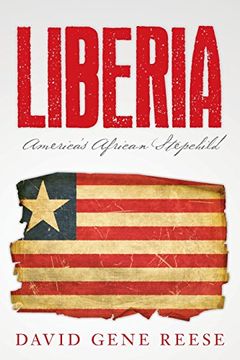Reseña del libro "Liberia: America'S African Stepchild (en Inglés)"
According to the author, Liberia's story begins not in Africa but in the United States and its struggle to deal with the race problem. A fast growing black population, both slave and free, coupled with slave uprisings, spread near paranoia in some areas. It also strengthened the resolve of many Americans who were intent on abolishing slavery and for a number of them wanting to bring Christianity and "civilization" to the entire continent of Africa. Most of this country's leaders (including President Abraham Lincoln) saw the answer to these problems in colonization. The colony would be Liberia. Reese begins his chronicle with the story of a remarkable individual, a mulatto named Paul Cuffe, born on a tiny island off the coast of Massachusetts, who can be said to be the "spiritual father" of Liberia.The author details the rise of the idea of colonization, creation of the American Colonization Society, and the society's quest to find a home for the colony. He traces the birth Of Liberia in 1821, and its progression from colony (although never formally declared as such by the United States) to commonwealth to Africa's first independent republic in 1847. It was a progression marked by deadly fevers, threats of starvation, and clashes and wars with the native Africans. The author moves on to chart the vicissitudes of the republic as it grappled with financial crises, tribal wars, scandals, accusations of slavery, and the emergence of a society based on inequality and discrimination. Not to mention fending off the rapacious advances of European powers in their "scramble for Africa." The last several chapters center on William Tubman's twenty-seven-year presidency, the iron ore-fueled economic bonanza and resultant "growth without development," the mounting unrest against the long-term rule of the America-Liberian colonists, and its conclusion in the bloody military coup in 1980. Reese in closing points out that the end of Americo-Liberian 130 year-old dominance over the vastly larger native African population fired hopes for a better future. A new constitution was adopted, and the new regime held elections. But the country still would have to endure two decades of brutal rule, of warring tribes and military factions, a devastating civil war, and an Ebola epidemic of epic severity before the future brightened at all. With the election of Ellen Johnson Sirleaf, Africa's first female head of state, followed by the democratic election of her successor as president, one can hope that America's African step child, having suffered a painfully uncertain childhood, will now emerge as a mature, diverse nation ready to take its rightful place in the family of nations. The book's approach to telling Liberia's history is different from most histories. It includes healthy doses of socioeconomic and cultural discussions and biographical sketches of important figures in Liberia's history. Some such as Robert F. Stockton and Marcus Garvey are not generally associated with Liberia. The firsthand accounts from unpublished diaries, long-out of print books, and newspapers and other periodicals can be fascinating--- especially those of the battles between the settlers and natives and the interactions of the missionary-minded founders and the tribal "kings" (chiefs). An entire chapter is devoted To Benjamin Anderson's observations on his epic 1868 explorations.Finally, Reese includes brief background pieces on various subjects in the book (e.g., slavery, Liberia's military, secret societies, etc.) that can be read or skipped depending on the reader's interests.

